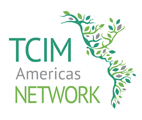Annual Meeting of the WHO Herbal Medicine Regulatory Cooperation Network in Turkey

Ankara, Turkey – From April 16-20, the 15th Annual Meeting of the World Health Organization’s (WHO) Herbal Medicines Regulatory Cooperation Network (IRCH) was held in Turkey. The event brought together more than 20 regulatory agencies from around the world, including representatives from Latin America, Africa and Europe. Brazil and Cuba participated in person, while Chile and Argentina participated virtually.
During this meeting, critical issues related to the quality, safety and efficacy of herbal products were addressed. One of the highlights was the presentation of a proposed WHO global tool for the evaluation of the regulation of traditional medicine. This development represents a significant step towards the harmonization and improvement of regulatory practices worldwide.
In addition, a workshop was held on pharmacopoeia of herbal products, where countries with established pharmacopoeias presented progress and challenges in this field. The importance of adequate characterization of herbal products to ensure their quality and therapeutic consistency was stressed, especially considering the complexity of these products due to their diverse composition.
The IRCH, established in 2006, is a global network of regulatory authorities in charge of the regulation of herbal medicinal products. Its mission is to protect and promote public health and safety through improved regulation of these products. Since WHO became its secretariat in 2017, IRCH membership has grown from 35 to 47 members in 2021.
IRCH member countries included representatives from Africa, with countries such as Botswana, Comoros, Eritrea, Ghana, Namibia, South Africa, Uganda, Tanzania, and Zimbabwe; from the Americas, with Argentina, Brazil, Canada, Chile, Cuba, Mexico, Peru, and the United States; from Europe, with Armenia, Germany, Hungary, Italy, the Netherlands, Poland, Portugal, Switzerland, Turkey, and the United Kingdom; and from Asia, with India, Indonesia, Myanmar, Nepal, and Thailand. In addition, regional and subregional bodies such as the Association of Southeast Asian Nations (ASEAN), the European Medicines Agency (EMA) and the Latin American Parliament also participated.
Despite the progress made, the IRCH continues to face significant challenges in the regulation of herbal products. The meeting highlighted the need to strengthen technical cooperation and collaboration among member countries to overcome these challenges and ensure the quality and safety of herbal products for the benefit of global public health.
This annual meeting reinforces IRCH and WHO’s commitment to the effective regulation of herbal medicines and the promotion of traditional medicine as a vital component of health systems worldwide. de la IRCH y la OMS con la regulación efectiva de los medicamentos herbarios y la promoción de la medicina tradicional como una componente vital de los sistemas de salud en todo el mundo.

Diadelis Remirez, CECMED Cuba. Dr. Pradeep Dua, Research Officer at Drugs Control Cell, Ministry Of Ayush. MSc. João Paulo Silvério Perfeito (GMESP-Anvisa). DrDra. Ana Cecília Bezerra (Anvisa-Brasil) Kim Sungchol, head of WHO Traditional, Complementary and Integrative Medicine (TCIM) Unit


